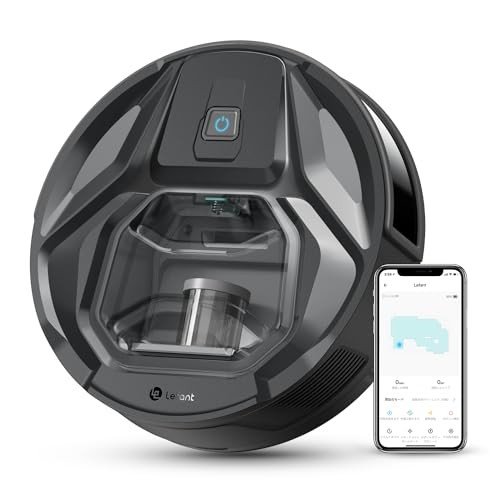The Future of Home Cleaning: A Comprehensive Guide to Robot Vacuums and Cleaners
Recently, the development of robot vacuums and cleaners has transformed the landscape of home cleaning. These autonomous gadgets integrate innovative technology with user convenience, offering a service for hectic families that look for to minimize the time invested in cleaning tasks. This short article checks out the types, functions, benefits, and frequently asked concerns about robot vacuums and cleaners, presenting a clear understanding of how they can enhance everyday life.
What is a Robot Vacuum and Cleaner?
A robot vacuum and cleaner is a self-operating device created to autonomously browse and tidy floorings. It makes use of a combination of sensors, electronic cameras, and artificial intelligence to map areas and determine obstacles, effectively vacuuming different surface areas including carpets, wood floorings, and tiles. Some models also consist of mopping capabilities, allowing them to scrub and sanitize hard floors.
Types of Robot Vacuums and Cleaners
Robot vacuums been available in a number of types, each created to deal with specific cleaning requirements.
| Type of Robot Vacuum | Description | Best For |
|---|---|---|
| Fundamental Robot Vacuum | Entry-level vacuums that supply essential cleaning company without sophisticated functions. | Budget-conscious users |
| Smart Robot Vacuum | Functions Wi-Fi connection, app control, and voice control compatibility with wise home gadgets. | Tech-savvy people |
| Roaming Robot Vacuum | Geared up with sophisticated navigation systems, these vacuums expertly map large locations effectively. | Large homes and open areas |
| Hybrid Robot Vacuum | Integrates vacuuming and mopping functions in one gadget. | Users trying to find multi-functional cleaning services |
| Pet Hair Robot Vacuum | Designed with special brushes and strong suction abilities to deal with family pet hair. | Family pet owners |
Key Features to Consider
When selecting the ideal robot vacuum or cleaner, purchasers ought to think about numerous functions that affect efficiency and usability.
- Suction Power: This is essential for deep cleaning carpets and efficiently selecting up debris.
- Battery Life: Longer battery life permits the vacuum to clean larger locations without disturbance.
- Navigation Technology: Advanced models utilize laser or video camera navigation, while fundamental models depend on bump sensors.
- Smart Home Integration: Compatibility with platforms like Amazon Alexa or Google Assistant can boost user experience.
- Purification System: High-efficiency particulate air (HEPA) filters are important for asthma or allergy victims, recording fine dust and irritants.
- Dustbin Capacity: Larger dustbins require less frequent emptying, making maintenance easier.
- Mopping Functionality: Some designs come with mopping functions for cleaning hard surface areas.
- Sound Level: Quieter robotics enable for inconspicuous cleaning, specifically in noise-sensitive environments.
Advantages of Using Robot Vacuums and Cleaners
The adoption of robot vacuums brings many benefits that make them an attractive option for numerous homes.
- Time-saving: They run autonomously, enabling users to maximize time for other activities.
- Convenience: Many designs can be scheduled to clean up at specific times, offering versatile options.
- Constant Cleaning: Regular cleaning cycles lead to a regularly tidy living environment.
- Ease of access: Robotic vacuums can access difficult locations, like under furnishings, that conventional vacuums may battle with.
- Improved Air Quality: Regular usage can minimize dust and allergens, contributing to a healthier home environment.
Frequently Asked Questions (FAQs)
1. How do robot vacuums deal with barriers?
Many contemporary robot vacuums are equipped with sensors that help them spot and avoid obstacles. Some higher-end designs utilize advanced mapping innovations to produce a layout of the environment, allowing for more effective navigation.
2. How frequently should I run my robot vacuum?
The frequency of usage depends on your household's needs. Typically, running mop robot vacuum is suggested, particularly in homes with family pets or high foot traffic.
3. Can a robot vacuum manage animal hair efficiently?
Yes, numerous models are particularly designed for pet owners, featuring powerful suction and specialized brushes to tackle animal hair and dander efficiently.
4. Can I manage my robot vacuum with my smartphone?
Many clever robot vacuums include a matching mobile app that allows users to control settings, schedule cleaning sessions, and even monitor the cleaning activity from their smart devices.
5. Do robot vacuums just work on tough floorings?
While many robot vacuums are designed for tough floors, numerous designs can also effectively clean carpets, making them versatile for numerous floor covering types.
6. What is the average life-span of a robot vacuum?
The life-span of a robot vacuum normally ranges from 3 to 5 years, depending upon use, care, and the design's quality.
Robot vacuums and cleaners have actually transformed household cleaning regimens, supplying time-saving options with very little effort. While there are many options offered, prospective purchasers must thoroughly assess their requirements against the functions provided by various designs. As innovation continues to advance, robot vacuums are likely to become even smarter and more efficient, essentially changing how individuals approach home cleaning. Welcoming this innovation implies delighting in a cleaner home while focusing on what really matters in life: spending quality time with friends and family.
With the best robot vacuum or cleaner, the future of home cleaning looks both intelligent and uncomplicated.

